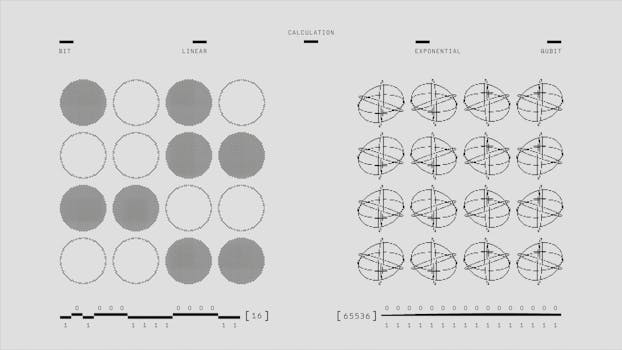
Understanding Quantum Mechanics and its Implications for Reality
Quantum Mechanics is a fundamental theory in physics that has revolutionized our understanding of reality. At its core, quantum mechanics is a branch of physics that studies the behavior of matter and energy at the smallest scales, such as atoms and subatomic particles. In this article, we will delve into the world of quantum mechanics and explore its implications for our understanding of the universe.
What is Quantum Mechanics?

Quantum mechanics is a theoretical framework that was developed in the early 20th century by physicists such as Max Planck, Albert Einstein, and Niels Bohr. The theory is based on the idea that energy comes in discrete packets, called quanta, and that the behavior of particles at the atomic and subatomic level is governed by probabilistic principles rather than deterministic laws.
Key Principles of Quantum Mechanics

There are several key principles that underlie the theory of quantum mechanics. These include:
- Wave-particle duality: The idea that particles, such as electrons, can exhibit both wave-like and particle-like behavior depending on how they are observed.
- Uncertainty principle: The idea that it is impossible to know certain properties of a particle, such as its position and momentum, simultaneously with infinite precision.
- Superposition: The idea that a particle can exist in multiple states simultaneously, such as spinning both clockwise and counterclockwise at the same time.
- Entanglement: The idea that particles can become connected in such a way that the state of one particle is dependent on the state of the other, even if they are separated by large distances.
Implications of Quantum Mechanics for Reality

The principles of quantum mechanics have far-reaching implications for our understanding of reality. Some of the most significant implications include:
- The nature of reality is probabilistic: Quantum mechanics suggests that the behavior of particles at the atomic and subatomic level is governed by probabilistic principles, rather than deterministic laws. This has led to a fundamental shift in our understanding of the nature of reality, with many physicists now believing that reality is inherently probabilistic.
- The observer effect: The act of observation itself can change the behavior of particles, which has led to a re-evaluation of the role of the observer in the scientific process.
- Non-locality: The phenomenon of entanglement suggests that particles can be connected in such a way that the state of one particle is dependent on the state of the other, even if they are separated by large distances. This has led to a re-evaluation of our understanding of space and time.
Applications of Quantum Mechanics

Quantum mechanics has many practical applications, including:
- Transistors: The building blocks of modern electronics, which rely on the principles of quantum mechanics to control the flow of electrical current.
- Lasers: Which rely on the principles of quantum mechanics to produce a concentrated beam of light.
- Computer chips: Which rely on the principles of quantum mechanics to process information.
- Cryptography: Which relies on the principles of quantum mechanics to secure sensitive information.
Conclusion

In conclusion, Quantum Mechanics is a fundamental theory in physics that has revolutionized our understanding of reality. The principles of quantum mechanics have far-reaching implications for our understanding of the nature of reality, and have many practical applications. As we continue to explore the mysteries of the quantum world, we may uncover even more surprising and counterintuitive phenomena that challenge our understanding of the universe.






